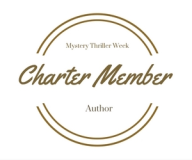The Twelve Virtues of the Merchant Priests
I recently reviewed, Sacred Commerce, A Blueprint for a New Humanity, by authors Ayman Sawaf and Rowan Gabrielle. In their brilliant book, Sawaf and Gabrielle talk about the emotional alchemy practiced by the merchant priests of ancient Egypt. As the name sacred commerce suggests, transacting can be an enlightening experience, not the greedy, capitalistic one that we seem to feel is necessary today in the 21st century, but one that assures all parties are equally respected, get the benefit of the deal, and that in every transaction, be it for an ounce of spices or a ton of brick, the parties are gratified, a win-win. For the merchant priests, emotional alchemy was their stock-in-trade and to practice it, they followed the path of Beauty, Goodness and Truth, no easy feat given that the people of ancient Egypt were so invested in “root” chakra thinking. Their main concern was survival and a bad business deal could mean no food on the table during a period in history where you couldn’t just put the week’s groceries on your credit card. By focusing on Beauty, Goodness and Truth, the merchant priest was able to elevate an entire marketplace with his resonance, expanding the field farther and farther beyond his person like a supercharged bubble of light and positivity. Just being inside the bubble changed you into a calmer, fairer, more gracious version of yourself.
It’s hard to think of a modern-day equivalent. Traders on Wall Street want the best deal for their clients and all the yelling and screaming is designed to elicit that singular deal for their clients alone. Our current leadership with its message of “America First” has not sparked the community problem-solving/brain-storming sessions that we will need to avoid the environmental Armageddon that seems destined to take us out if we don’t change course soon. Of all the Peoples of earth, perhaps the closest equivalent to the merchant priests are the Buddhist monks who spend hours chanting for the health and well-being of people they will never meet. But one small group in a world of over 7.5 billion people is not enough to elevate us all.
In the routine business dealings of the last century, the only thing that mattered was the “bottom line,” i.e., how much profit a business made. However, in 1994, John Elkington, an author, advisor, and entrepreneur who is known as a global authority on sustainability and corporate responsibility thought differently, coining the term, “triple bottom line.” In addition to profits, businesses should strive for and be guided by social and environmental/ecological goals. This assures a win-win for everyone and the planet and sounds a lot like merchant priest-speak. Similarly, by introducing spirituality into every exchange, you elevate that transaction above the 3-D world by including the “4th bottom line,” a/k/a, “spirituality.”
As an exercise to understanding the mindset of the merchant priest, Sawaf and Gabrielle recommended focusing on the 12 virtues of the merchant priest — honor, loyalty, nobility, virtue, grace, trust, courage, courtesy, gallantry, authority, service, and humility — to “automatically lift us to a higher octave of being.”
As a personal exercise for 2018, I’m going to take their advice and focus on one virtue a month until the year’s end. For the month of January, it will be “honor.” I like this idea of concentrating on one thing for an entire month. It’s so un-2017 where I focused on 14 different things every three seconds 24/7. It’s exhausting, frankly, and not all that good for your brain. So I’m taking the time to settle in, think it through, breathe a little, and when I’m ready, I’ll report out. Perhaps I can increase my own resonance in this manner, and in a small way, uplift my little part of the world.
A most happy and healthy New Year to you and yours. May this year be the one where we wrangle less over trivial matters, look within rather than without for answers to what really matters, and lift our heads to the sun, and each other, more frequently. May we each find nothing but love reflected back to us from every face we see — for that is the real gift of resonance.
pjlazos 1.1.18













Thank you, This is a Great Article, Brief and Educating. well-done
LikeLiked by 1 person
Thank you, kind sir.🙏👍
LikeLike
I really have enjoyed reading this beautiful post. The trading standards of the Ancient Merchant priests will benefit the whole of the human being. Not only do each one feel they got a good deal but there is also the happiness from having been engaged in an open and trusting way.
i know it can work today but there are still so much work to do before man understands that we all need each other. No man is an island.
Miriam
LikeLiked by 2 people
Ah, Miriam, so true! Thanks for stopping by. 😘🙏
LikeLiked by 1 person
LikeLiked by 1 person
I like the idea of taking the 12 virtues of the merchant priest as highlights and focus for each month of the year!…
The Ancient Egypts had a very spiritual when it comes to Commerce… Guided by the principles of Beauty, Goodness and Truth… almost like Plato´s Ideas!. I am guessing that maybe trade by those days was probably associated with barter more than with profit. Unlike ruthless Capitalism, exchanges seemed to be guiaded by the Good Faith (Bonafide) and fair dealing principles. Once again: we can learn so much from Ancient Civilizations.
Great post, dear Pam… Sending love & best wishes for 2018! 🙂
LikeLiked by 3 people
Thank you, Amalia. Right back at you. 😘😃
LikeLiked by 2 people
The Aztec judicial system was made up of multiple courts with differing levels of jurisdiction. These included the trial courts, appellate courts, and a supreme court.
The Aztecs had various special jurisdiction courts, including commercial courts (which handled marketplace and merchant disputes) right there at the market, you had a complaint against a merchant, and it was quickly addressed on the spot, by a judge in the market.
Aztec judges were viewed with great respect and honor, and were expected to be impartial, ethical, and honest. 🙂
LikeLiked by 3 people
Wow, I never knew that about the Aztecs. I always think about them as great mathematicians (Aztec calendar) and astrologers, and architects and water conservationists, but now I find out they had a great legal system in place. That’s wild and so forward thinking. 🤔 Thanks for sharing.
LikeLiked by 1 person
I love this, and your application. Guess what our Classical homeschool prog is based on? The uncovering of goodness, truth, and beauty in all of life, which Christians understand God to be the source of. Having just set out on WPress, I realized that what I was drawn to on the blog was truth and beauty. And then came a seminar introducing parents to the Classical program. I was agog on the threshold of this new journey with my boy, that the virtues I had wanted to write about were to be the cornerstone of my son’s learning….and life.
A wonderful year to you, Pam.
LikeLiked by 3 people
Wow, Diana, that’s fantastic! No coincidence there, eh? We’re always drawn to what our soul craves. A great year to you as well and much love and luck seeking goodness, truth and beauty this year! 😘
LikeLiked by 1 person
A fascinating example of the benefits of mindfulness and integrity in one’s business interactions with others. Dealing with people when “money” is involved is definitely not something I like to do. On one hand, I never want to benefit from someone else’s loss. “Things” are not of greater importance than good will and egalitarian relationships. On the other, I truly dislike having to fend off those who want to take advantage of others. Sadly, I’ve encountered the later in all walks of life, and with role models like the folks in power now, change will not be easy. I applaud your effort to give the “12 virtues” a try anyway, PJ. 🙂
LikeLiked by 3 people
Thanks, Carol. Already feeling a little stumped with the first one since honor takes many forms and there is, I think, the possibility of overdoing it. Looking forward to putting those thoughts on paper.
LikeLiked by 2 people
I look forward to reading your thoughts about the challenge you have set before yourself for the year, PJ and send you my best wishes. 🙂
LikeLiked by 3 people
🙏😘
LikeLiked by 2 people
Pam a more moral way of doing business that focuses on the importance of nurturing the employee, and the sustainability and quality of the product, than profit and mindless expansion, could only be good for the world. Good luck wit your spiritual journey of focusing on one virtue. It would be interesting to hear about how you think the processes has changed you and helped you grow.
LikeLiked by 2 people
Thanks, Paul. I will keep you posted!😆
LikeLiked by 2 people
Great! I am looking forward to your soul experiment…. and who know you might even inspire lazy old me to try!
LikeLiked by 3 people
Yes – go for it!!
LikeLiked by 2 people
And I will happily reblog!
LikeLiked by 2 people
Wow, such an interesting idea. Is ancient Egypt the only place where this has been tried before? Somehow modern capitalists who see wealth as a sign of moral worth seem to have gotten it backwards.
LikeLiked by 3 people
Haha! So true, Karen. I don’t know about other places. The book talks about how it was passed down through the ages to groups like the Knights of the Round Table and the Knights Templar. We’d be a better, more coherent society if we practiced this.😉
LikeLiked by 2 people
We have a long way to go, but each of us can do our part in improving ourselves and our tiny area of the world. I love this post, Pam, and on your singular focus for each month. Such a great idea!
LikeLiked by 3 people
Thanks, Michele! Feel free to join me!😘
LikeLiked by 1 person
I’m looking forward to your monthly explorations of the virtues. Hope this New Year is kind to you!
LikeLiked by 2 people
Thank you, Jean, and you as well!😘
LikeLiked by 2 people
same to you, dear P.J. ❤
LikeLiked by 3 people
Thank you for this! Inspiring. I’ll follow your example and practice the 12 virtues for the 12 months. It begins with each one of us if there is to be any effect from the micro to the macro. Happy 2018!!
LikeLiked by 4 people
So true, cause we’re all in this together! Looking forward to reading your take on it.😘 Happy New Year! 🎆🎊🎈
LikeLiked by 1 person
Good luck with your singular focus. Not sure I could do it. Can’t wait to hear how it works out. Happy New a year.
LikeLiked by 4 people
Happy New Year, Ken! 🎉 Yes, singularity is tough for the modern human. Who knows? Maybe I’ll start a trend!
Looking forward to reading more Off the Leash in 2018. 😍
LikeLiked by 1 person